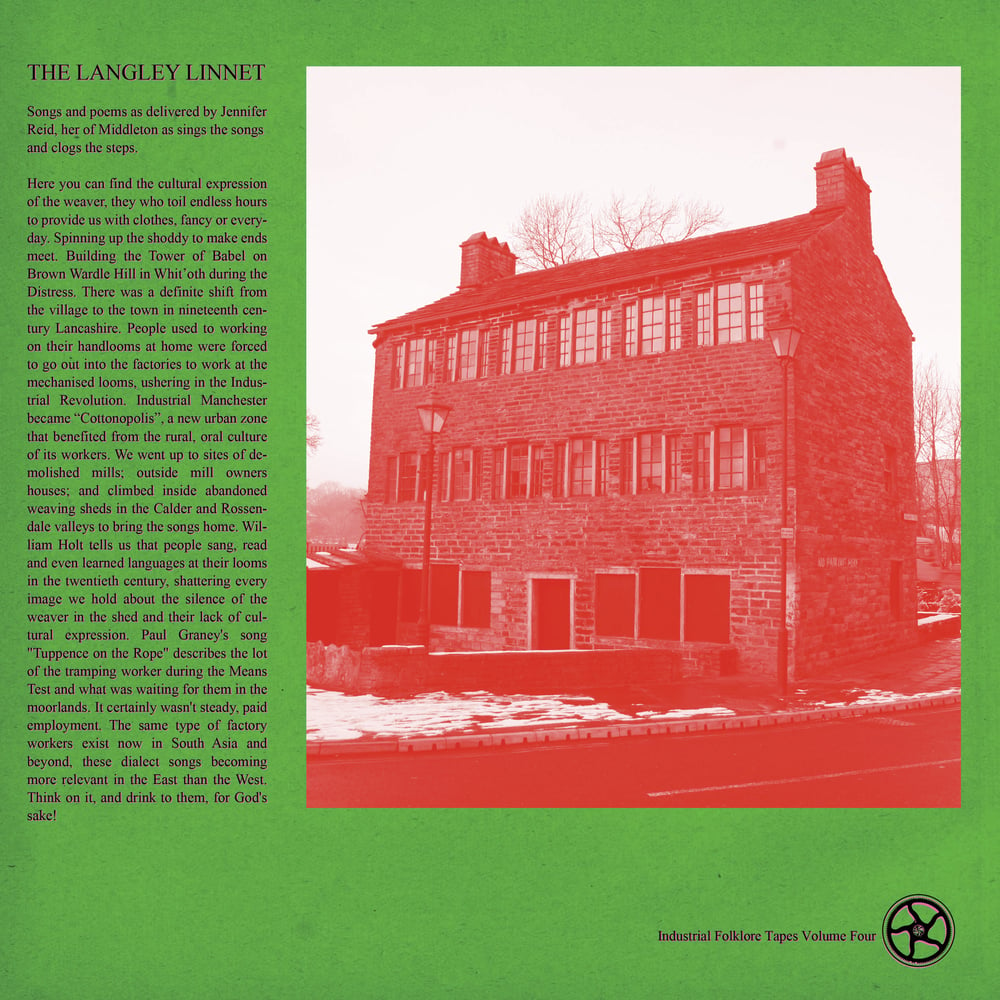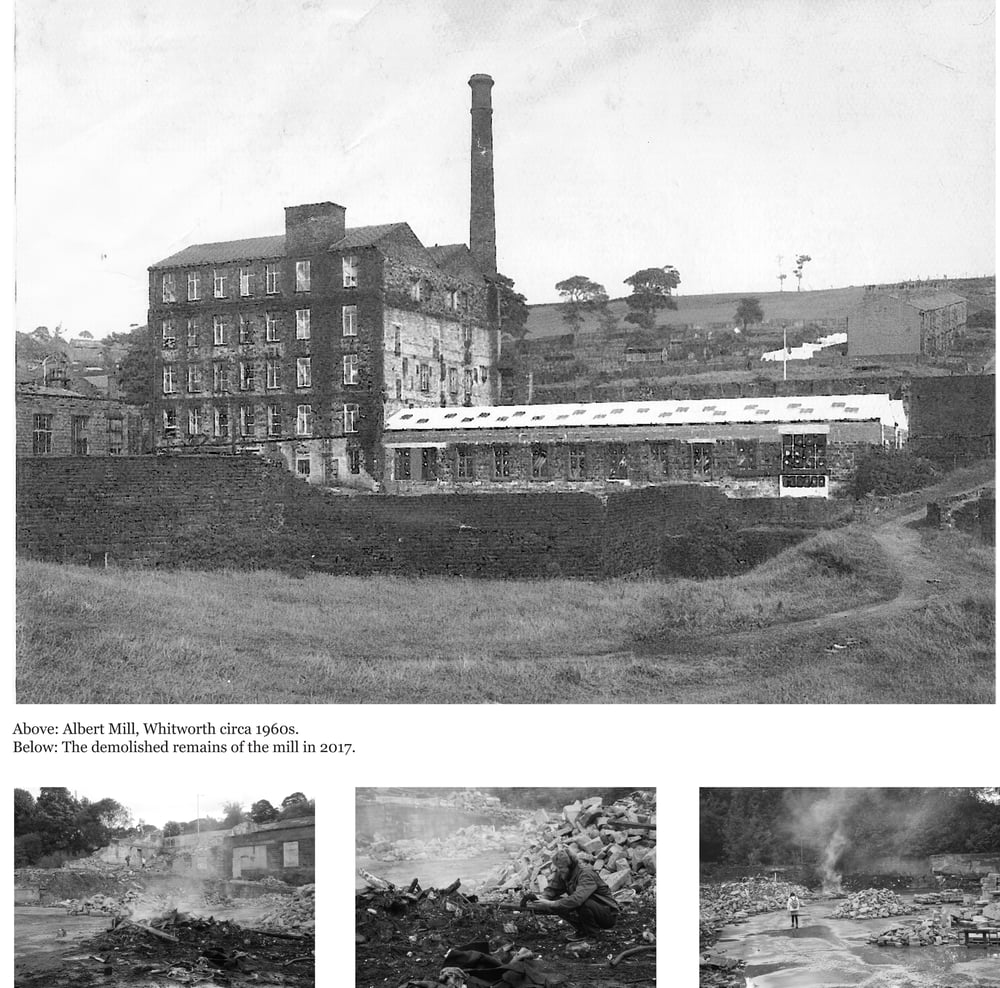Industrial Folklore Tapes Volume IV - The Langley Linnet (NO BOOKLET)
£10.00
-Songs sung and poems read by Jennifer Reid
-Created by Jennifer Reid, Mary Stark & David Chatton Barker
-Ten-inch record in gatefold sleeve
-Twelve page black and white machine sewn booklet
-Letterpress song sheet (first 100 copies only)
-Limited edition of 250
Songs and poems as delivered by Jennifer Reid, her of Middleton, as sings the songs and clogs the steps.
Over the course of two years Mary Stark and David Chatton Barker travelled with singer Jennifer Reid to post-industrial sites around Lancashire, documenting these sites through sound and film. They visited the ruins of mills, newly developed estates, rural dells and the open moorland. These recordings capture Jennifer's voice with the natural accompaniment of the 21st century; buses, cars, birds, streams, people, and the resonance of the the landscape ring through...
Here you can find the cultural expression of the weaver, they who toil endless hours to provide us with clothes, fancy or everyday. Spinning up the shoddy to make ends meet. Building the Tower of Babel on Brown Wardle Hill in Whit’oth during the Distress. There was a definite shift from the village to the town in nineteenth century Lancashire. People used to working on their handlooms at home were forced to go out into the factories to work at the mechanised looms, ushering in the Industrial Revolution. Industrial Manchester became “Cottonopolis”, a new urban zone that benefited from the rural, oral culture of its workers. We went up to sites of demolished mills; outside mill owners houses; and climbed inside abandoned weaving sheds in the Calder and Rossendale valleys to bring the songs home. William Holt tells us that people sang, read and even learned languages at their looms in the twentieth century, shattering every image we hold about the silence of the weaver in the shed and their lack of cultural expression. Paul Graney's song "Tuppence on the Rope" describes the lot of the tramping worker during the Means Test and what was waiting for them in the moorlands. It certainly wasn't steady, paid employment. The same type of factory workers exist now in South Asia and beyond, these dialect songs becoming more relevant in the East than the West. Think on it, and drink to them, for God's sake!




